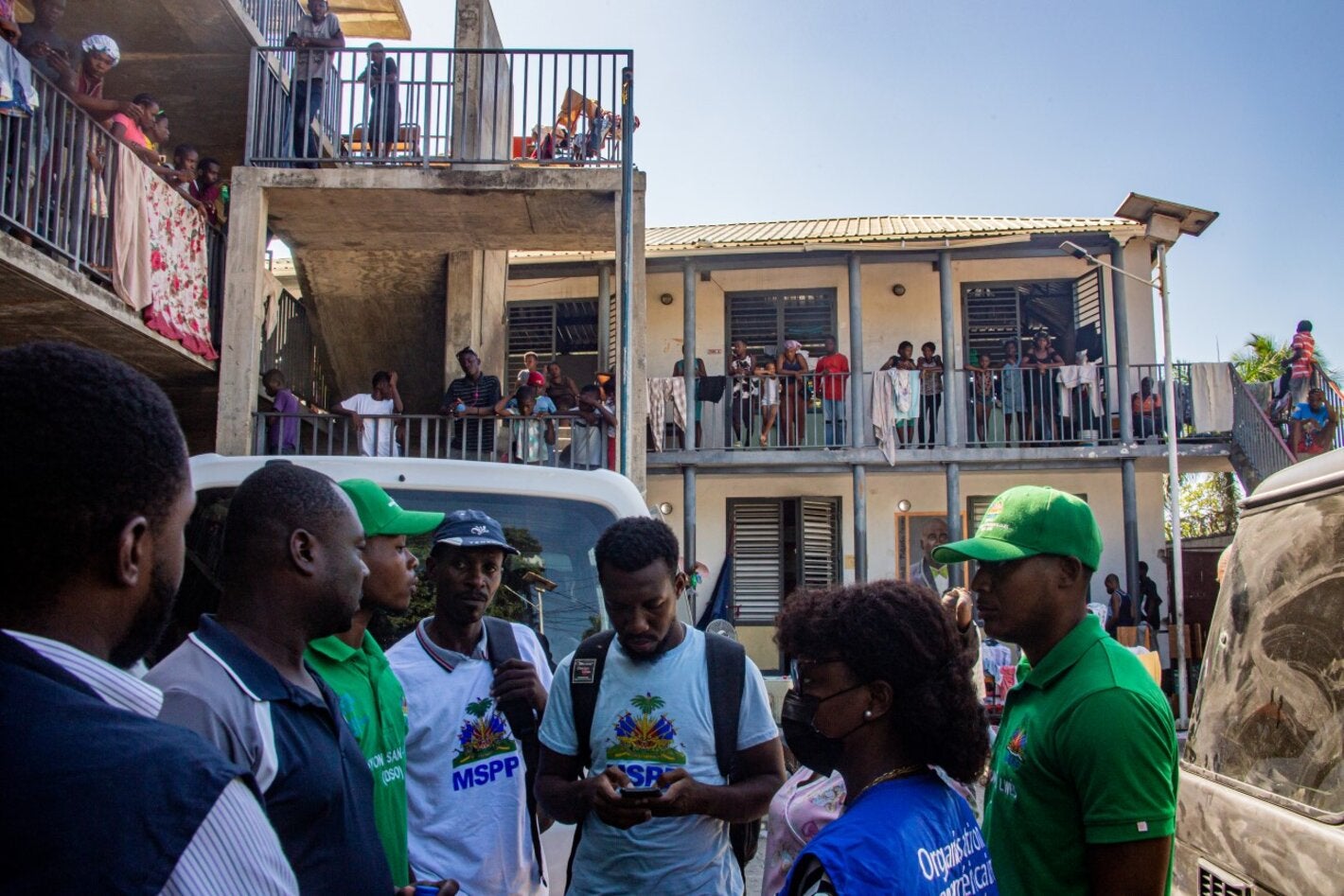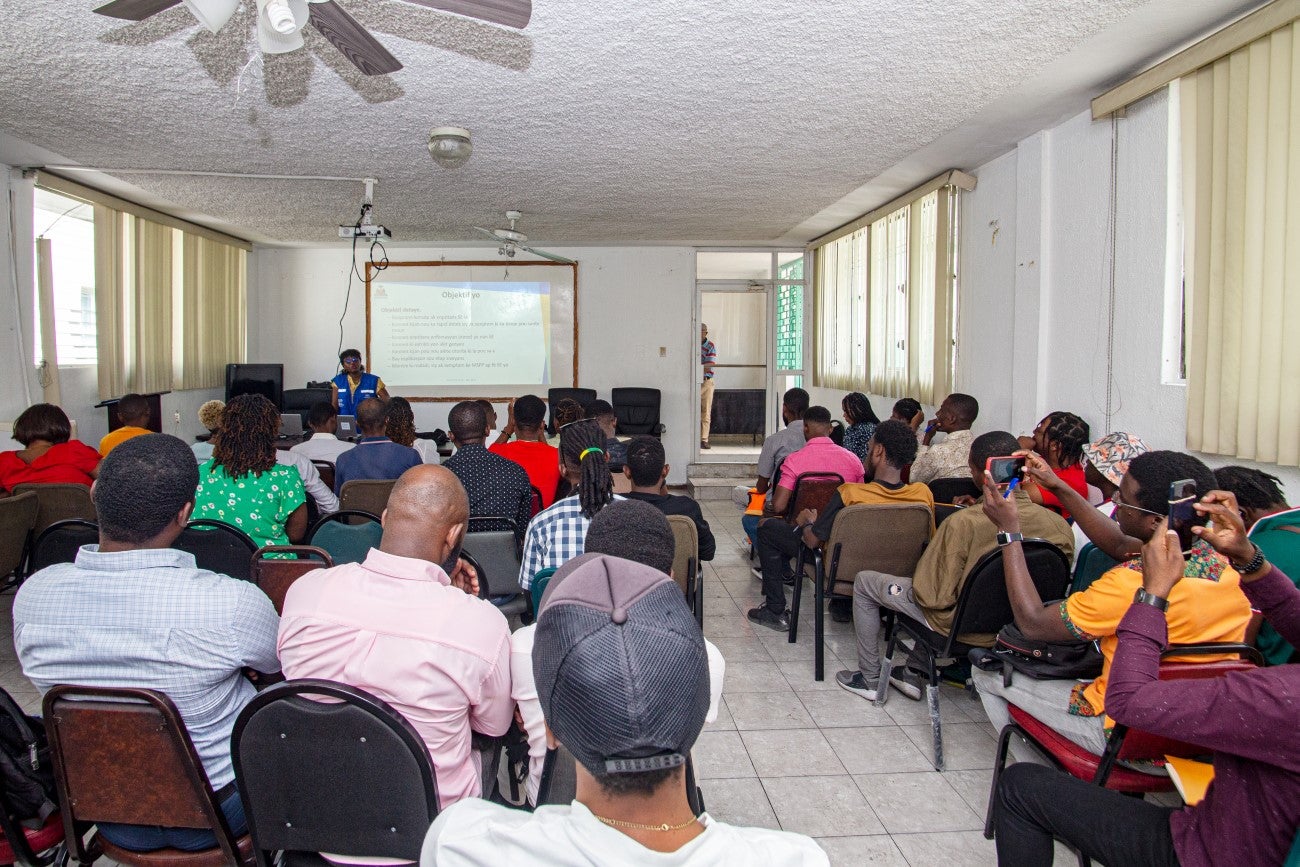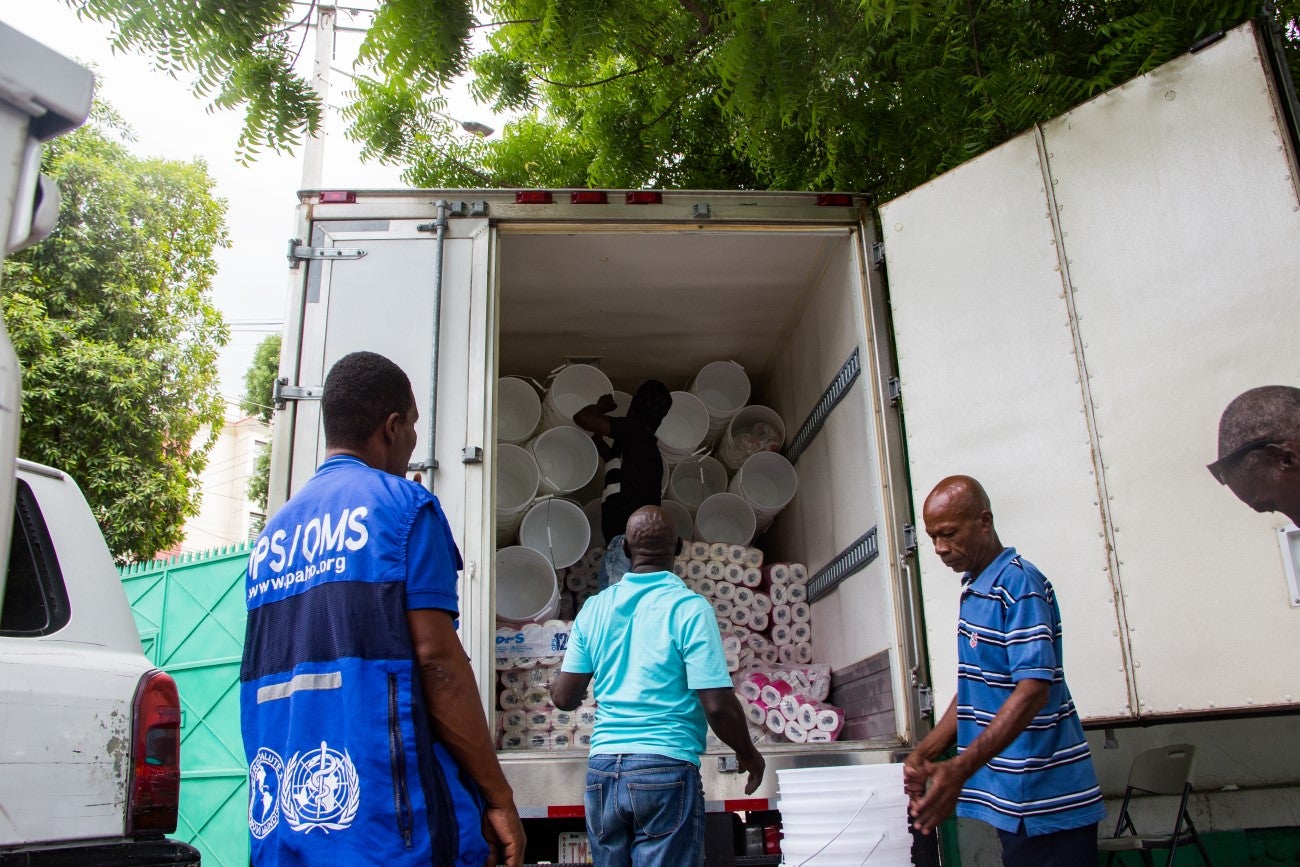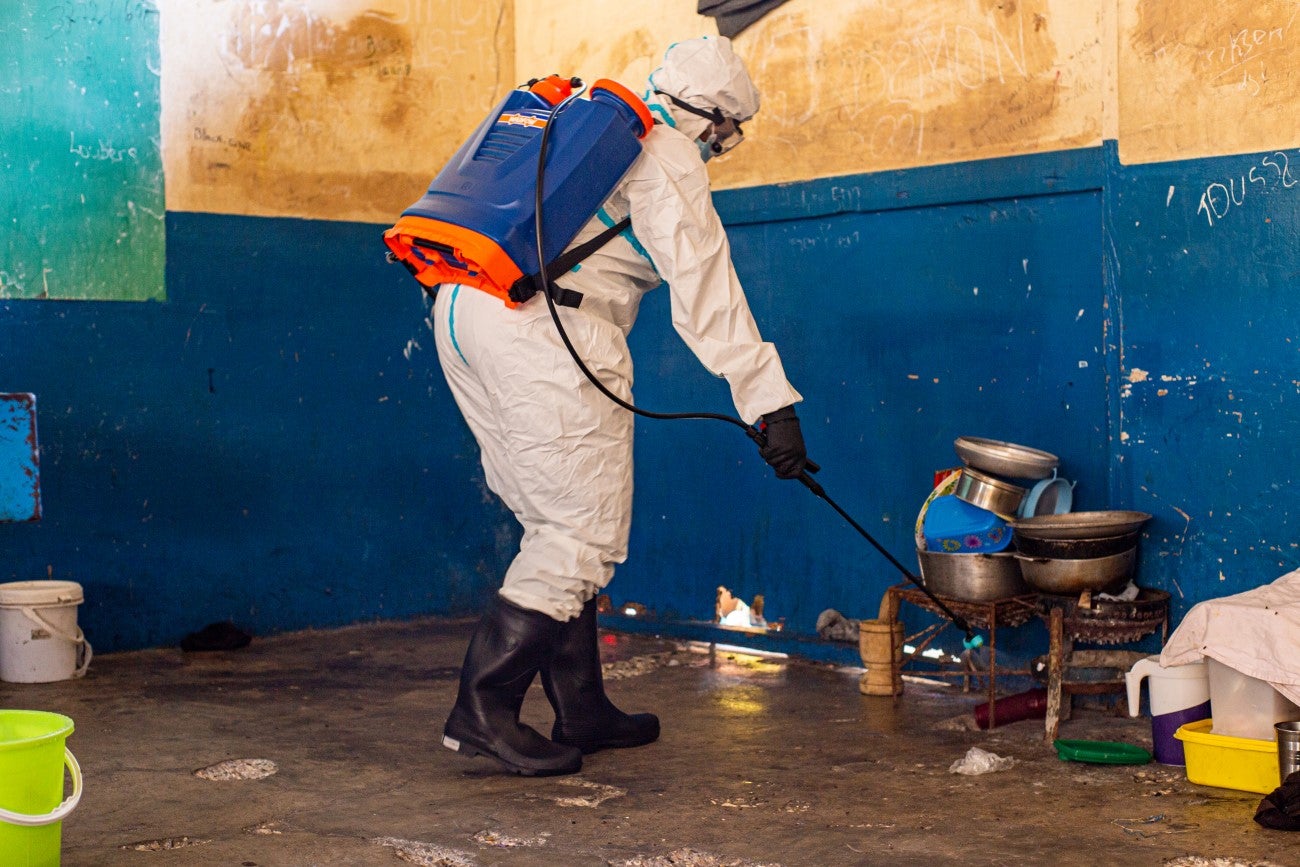
Port-au-Prince, 5 August 2024 (PAHO) - The security situation in Haiti has led hundreds of thousands of inhabitants of the Port-au-Prince Metropolitan Area (ZMPAP) to flee the violence and take refuge in sites that are, for the most part, unsuitable for housing these displaced populations. Overcrowding and inadequate sanitary infrastructures in these places encourage the spread of epidemics and disease.
Faced with this threat, the Pan American Health Organization (PAHO/WHO) has stepped up its support for the Ministry of Public Health and Population (MSPP), with the financial backing of the CERF Emergency Fund, through a grant to the West Department Health Office (DSO), to meet the pressing hygiene and sanitation needs of these populations. Since June 1, 2024, 12 new sites for displaced persons have benefited from the deployment of a multidisciplinary team including hygienists to deal with the health emergency, bringing to 33 the total number of sites receiving PAHO/WHO support for a population estimated at almost 50,000 people.
Training and deployment of hygienists
On May 30 and 31, 2024, an introductory session was organized for the 31 new epidemiological watchmen and 21 new hygienists. The aim was to provide them with a basic understanding of sanitation techniques and hygiene in IDP sites. The hygienists received training in the basics of water quality, sanitation, awareness-raising, decontamination and data reporting.
"I learned a lot from this training. When I share this knowledge with others, they understand and always ask questions. The role of a hygienist is to decontaminate, raise awareness, visit families, install water points and check sanitary conditions in the camp," shares Destin Kethia, hygienist at the Faculté de Linguistique Appliquée IDP site.
An awareness-raising session on Protection against Sexual Exploitation, Abuse and Harassment (PRSEAH) was also included in the training. Elizabeth Louisma, PRSEAH focal point at PAHO/WHO, points out: "Raising awareness among our staff of the risks of sexual exploitation and abuse is essential to guarantee the safety and well-being of displaced populations. Our aim is to ensure that every staff member understands the importance of these measures to prevent abuse and protect vulnerable populations."
Logistical support and WASH equipment
Since the beginning of the crisis, PAHO/WHO has provided considerable logistical support, including the donation of several tons of WASH (water, sanitation and hygiene) equipment. Recently, 3.77 tons of materials, including blankets, buckets, 130,000 aquatabs tablets, chlorine and sprayers, were distributed to the 33 sites supported by the DSO.
"What I have to deal with the most is the lack of water for people to drink, bathe... That's the biggest challenge I'm trying to overcome. Despite this, we still can't fight it completely," explains Démosthène Philippe, hygienist at the Ministry of Communication's IDP site.
Epidemics under control despite an upsurge in displacement
The combined efforts of PAHO/WHO and MSPP have so far prevented outbreaks of cholera and COVID-19 in IDP sites. Interventions have included setting up decontamination protocols, raising public awareness, improving sanitary conditions and strengthening surveillance and epidemiological response with dedicated teams on the ground. These measures have considerably reduced the risk of disease spreading.
However, the challenge remains daunting, as populations continue to be displaced not only in the ZMPAP but also in other parts of the country. The situation calls for constant vigilance and adaptation of strategies to meet growing needs. It is crucial to continue providing logistical support and building the capacity of teams on the ground to guarantee the health and safety of displaced populations.






